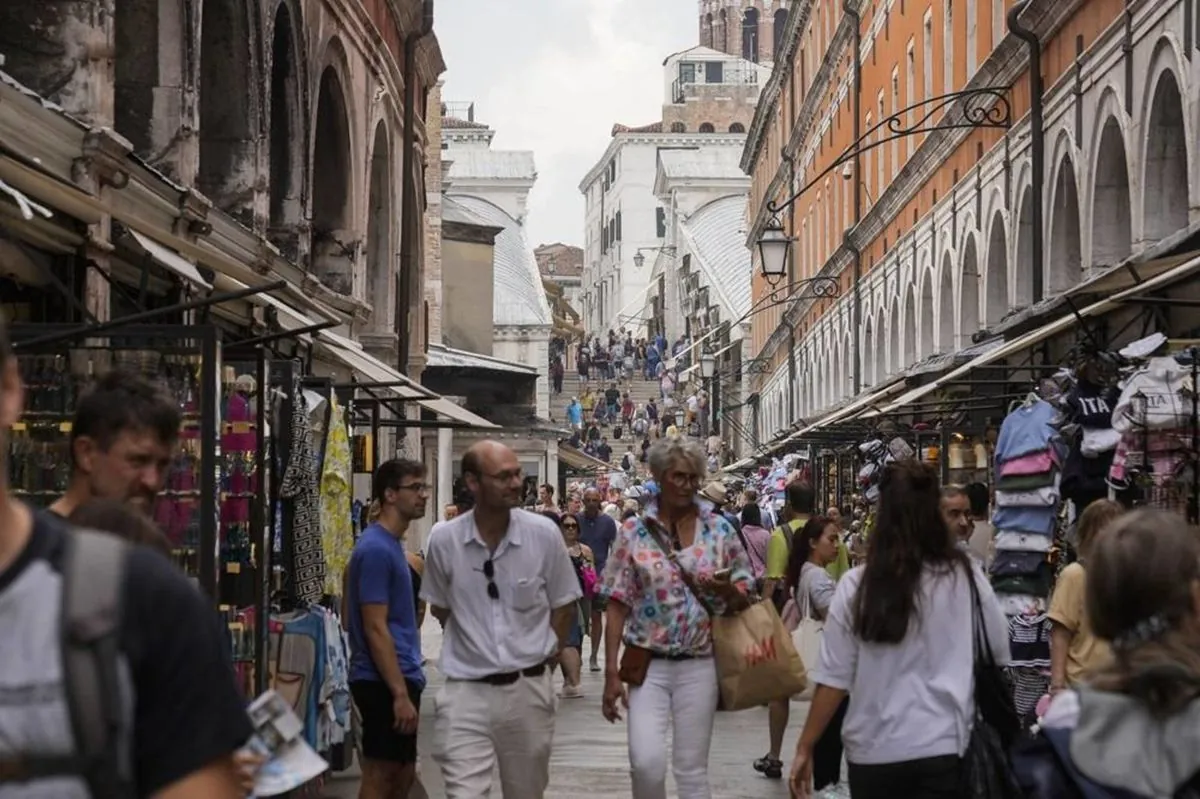Venice, the iconic Italian city built on 118 small islands, is implementing new measures to address its longstanding issue of overtourism. Starting August 1, 2024, tourist groups will be limited to 25 people, and guides will be prohibited from using loudspeakers. These regulations aim to enhance the quality of life for residents and improve pedestrian mobility in the city's historic center and nearby islands.
The new rules, originally slated for June 2024, will cover Venice's central areas and the islands of Murano, Burano, and Torcello. Violators face fines ranging from €25 to €500. Notably, children under two years old are exempt from the group size limit, as are students on educational trips.
This initiative follows Venice's groundbreaking experiment in April 2024, when it became the first city globally to introduce a payment system for visitors during peak periods. The pilot program, which concluded in July 2024, is now under review to determine its future implementation.
Venice's struggle with mass tourism is not new. The city, which receives approximately 30 million visitors annually, has seen its resident population dwindle from about 175,000 in the 1950s to around 50,000 today. This influx of tourists has put significant pressure on the city's delicate infrastructure and unique ecosystem.
"Venice's Outstanding Universal Value remains under threat from a number of serious issues, including the negative impacts of overtourism."
The city's efforts to manage tourism extend beyond these recent measures. In 2021, Venice banned large cruise ships from entering its historic center, addressing concerns about environmental damage and the impact on the city's foundations. The Venetian lagoon, the largest wetland in the Mediterranean Basin, has been particularly vulnerable to the effects of mass tourism and climate change.
Venice's dependence on tourism, which accounts for about 11% of its GDP, presents a complex challenge. While the city seeks to preserve its cultural heritage and improve residents' quality of life, it must balance these goals with its economic reliance on visitors.
As Venice continues to grapple with these issues, its innovative approaches to tourism management are being closely watched by other popular destinations facing similar challenges. The city's efforts to find a sustainable balance between preserving its unique character and accommodating visitors may serve as a model for other historic urban centers worldwide.
